Iranian Activist Vahid Beheshti To Appear At Israeli Knesset
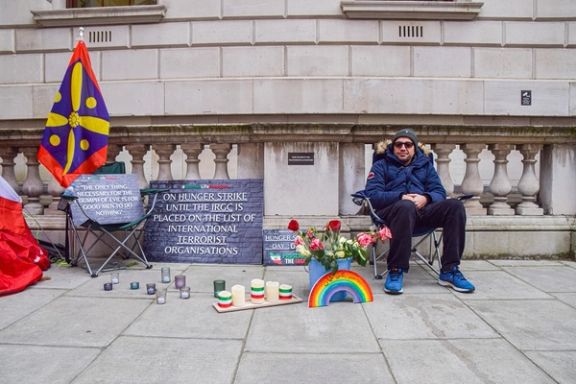
Iranian opposition figure and activist Vahid Beheshti is slated to arrive in Israel to express his support for the Jewish state at the Knesset on Tuesday.

Iranian opposition figure and activist Vahid Beheshti is slated to arrive in Israel to express his support for the Jewish state at the Knesset on Tuesday.
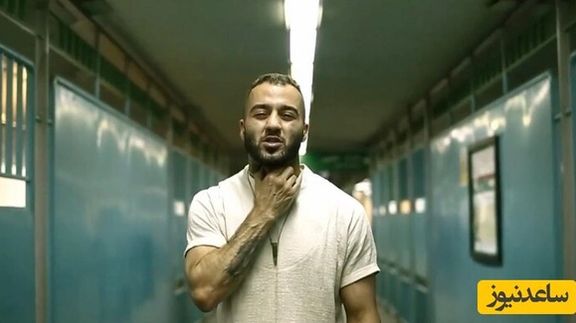
Iranian rapper Toomaj Salehi has been sentenced to further jail time as the regime cracks down on dissent, holding the celebrity as an example to the nation.
He has been convicted to "one year imprisonment, two years passport annulment, and participation in a behavioral management course," as revealed by his lawyer on Monday. Amir Raisian, sharing the announcement on social media, explained that Salehi's conviction is linked to "propaganda against the system" and the rapper's grievances against case officers.
As the regime continues to battle dissenting voices, prominent figures such as Salehi have been punished harshly, with many receiving jail time, travel bans and bans on work, to deter the public from further protest.
Salehi's lawyer penned an open letter to Gholamhossein Mohseni Ejei, the head of the judiciary, characterizing the legal proceedings as "the strangest and most extraordinary." The lawyer raised questions about the process's conformity to criminal procedural laws.
Salehi, initially released on bail on November 18 after enduring 252 days in prison, found himself back in custody just 12 days later. This followed the release of a video in which Salehi detailed the torture he endured during his imprisonment. The rapper, in the video, cited the experiences as the basis for his complaints against prison officials and government-affiliated media.
Salehi's social media account reported on December 14 that he suffered "severe damage to the eyes and face" during his latest arrest by government forces, contradicting official statements and raising concerns about the adherence to the law during the violent incident in Babol.
Salehi gained fame for his protest songs that tackled social issues and government injustices in Iran. His first arrest in October 2022 was a component of a wider crackdown on political dissidents of the regime, a response to the protests triggered by the death of Mahsa Amini in morality police custody.
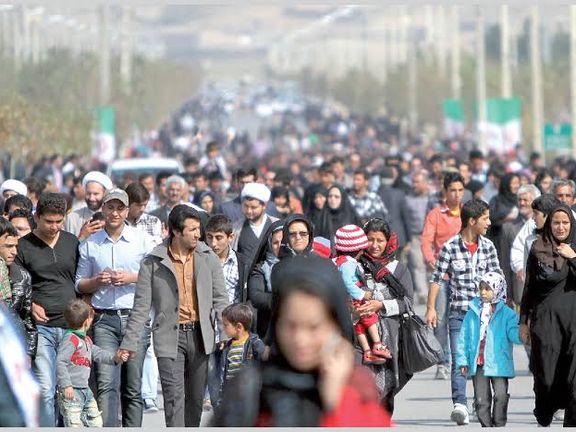
A moderate conservative politician in Iran asserts that the concepts of reformism and conservatism have lost their meaning for the people, struggling for a living.
Former lawmaker Heshmatollah Falahatpisheh told the press that both of the main political factions in Iran have fallen victim to their leaders' opportunism. He charged that leaders of both factions have exploited their members with populist policies that only served their personal interests.
Falahatpisheh did not name anyone in the two leading factions, but Iranian protesters have been voicing their disillusionment and disappointment about conservatives and Reformists in major protests in Iran since 2018 by chanting "It's all over for both reformists and conservatives."
He said that populism and prioritizing personal gains by key politicians have become the perils of political participation at election times. He added that major politicians of both camps can no longer exercise any influence on the voters.
Falahatpisheh further argued that the opportunists have always had short-term interests in politics and never tried to leave a lasting impact on the people's lives. "Their greed for power and wealth has done a lot of damage to the country," he said. To support his point, Falahatpisheh pointed out that the members of both of leading political factions have been involved in major financial corruption cases.
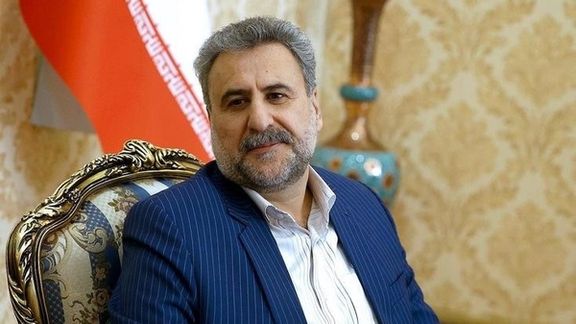
Nonetheless, and although Iranian media commentators and politicians generally believe that there is no room for participation and competition in the upcoming parliamentary election for Iran's reformists, all of whose candidates have reportedly been barred from running for the parliament, still, part of the reform camp, in particular three moderate parties, are keen to take part in the March 1 elections.
This comes while major reformists parties and their leading politicians have said that they are not going to take part in the elections. Reformist leader and former president Mohammad Khatami has said that there is no point in political participation when the regime is not prepared to introduce any change in the political system. Jailed reformist figure Mostafa Tajzadeh has openly talked about boycotting the elections.
According to Nameh News, however, three moderate reformist parties, the Executives of Construction Party led by Hossein Marashi, Neda-ye Iranian Party led by Shahaboddin Tabatabai, and the Moderation and Development Party led by former Vice President Mohammad Bagher Nobakht are determined to nominate their candidates for the upcoming elections.
No well-known reformist or moderate candidates have been allowed to run in the first phase of the vetting by the Interior Ministry, and insiders of the reform camp say there is no one left to run. However, some Reformists say they will look for moderate faces among those whose qualifications will be endorsed by the Guardian Council in January. The Moderation and Development Party which is close to former President Hassan Rouhani says it will name 16 candidates for the list of 30 candidates for the seats that represent Tehran. They probably hope that the other two parties will fill the other 14 slots in the list as well as several others in the provinces.
Although conservative politicians usually dismiss plans and even wishful thinking of the Reformists and moderates to take part in the election, conservative activist Mohammad Ali Pourmokhtar has told Nameh News that conservatives should be weary of a surprise comeback by the reformists.
Pourmokhtar added that Reformists might be able to benefit from the situation if conservatives cannot achieve a consensus among themselves and announce several lists of candidates rather than one.
Such a surprise is not unprecedented. In 1997 when Iranian conservatives and their leaders were almost certain that they were going to win the presidency, a hitherto unknown reformist figure Mohammad Khatami's landslide victory took the entire conservative camp by surprise. In the parliamentary elections, a substantial win means to have around half of the 290 seats at the Majles.
"This is not conceivable at least at this point," a seasoned Iran analyst told Iran International.
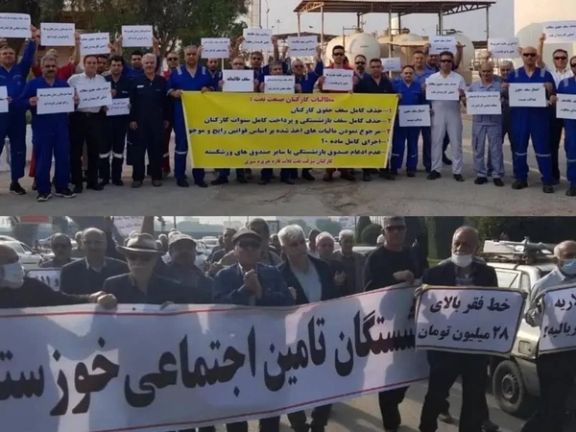
Ongoing labor rights and economic demands have ignited further protests in various sectors across Iran, including retirees and oil and gas employees.
Employees of a petroleum company, affiliated with Iran's Offshore Oil Company in Hormozgan province, gathered once again to voice their dissatisfaction and protest the neglect of their demands.
Likewise, official and contractual employees of the Ministry of Oil, employed at the Aghajari Oil and Gas Exploitation Company, resumed protests against the disregard for their demands including the complete removal of salary caps, elimination of retirement age restrictions, and reimbursement of excess tax deductions.
Prior to this, Iranian oil industry employees had staged strikes, advocating for salary and wage increases to address economic concerns.
In a separate development, workers from the terminals and petrochemical reservoirs in Bandar Mahshahr held a demonstration outside their company's building, protesting the lack of attention to their demands.
Simultaneously, after eight consecutive days of strikes, employees of the Iranian National Steel Industrial Group declared their intention to prolong the strike until their demands, including salary and wage increases, are met.
The trend continued with retirees from the Social Security of Ahvaz and Shush expressing dissatisfaction with poor living conditions and unmet demands, rallying in front of the Social Security Organization and the Governorate building.
Retirees from the steel industry in Mazandaran and Esfahan also gathered in front of the Pension Fund, emphasizing their grievances.
In 2023 alone, Iran has witnessed at least 320 labor-related gatherings and 111 labor strikes, with the majority of protests centered around demands for improved wages and working conditions.
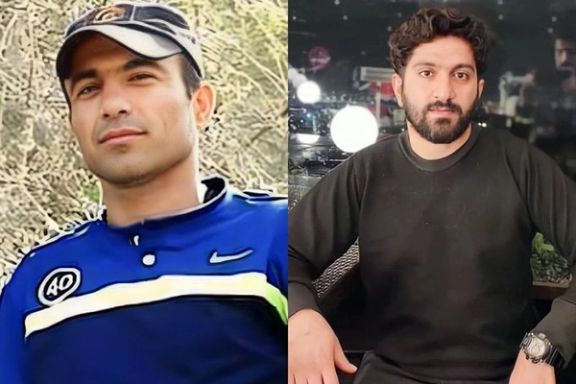
Reza Rasaei and Mojahed Kourkour, protesters sentenced to death, have been dispatched for execution.
Azardokht Haqjouyan, Reza Rasaei's mother, asserted her son's innocence and pleaded for assistance to prevent the execution of his death sentence. She revealed that her son's extensive 1,500-page case file had been reviewed within a week.
Rasaei faces accusations of "murder" in connection with the death of Nader Beirami, the head of intelligence in Sanandaj, during a protest in the city on November 17, 2022.
Mojahed Kourkour's sister confirmed on December 24 that her brother's death sentence had been ratified in the 39th branch of the Supreme Court.
Kourkour is among the detainees of the nationwide uprising in Izeh, arrested on December 20, 2022 during an armed attack by security and law enforcement forces on a village near Izeh.
The judiciary identifies him as the "main suspect" in the killing of 10-year-old Kian Pirfalak, but Kian's family steadfastly maintains that the perpetrators were government forces. The situation has raised international concern over the due process and human rights in Iran.
In the latest annual report, Human Rights Activists In Iran (HRANA) claimed the execution of 746 individuals, noting a 32 percent increase of executions from 2022 and death sentences issued rising by 68 percent.
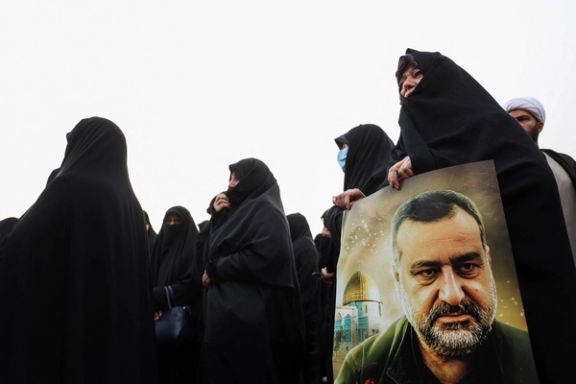
After Iran International exposed the inner circle of Iran’s top military man in Syria, eliminated by Israel this week, it is believed they will be Israel's next potential targets.
Israeli network i24 News reported on Sunday that following the killing of senior Iranian Revolutionary Guard general Razi Mousavi in an Israeli airstrike, his close aides may be next on Israel's hit list. The report by the Israeli website, which cited Iran International as the source of the information, was picked up by Iranian state media as “the four IRGC-Quds Force members on Israel’s kill list.”
Iran International’s Mojtaba Pourmohsen has exclusively reported on Iran’s network of arms smuggling into Syria via passenger planes and then to Lebanon and has identified several key members of the team. The operation was overseen by Razi Mousavi, prompting speculations that his deputies are going to run the operation after his death.
Abdollah Ebadi is Mousavi’s deputy who transfers weapons from Iran to Syria via commercial flights. His right hand, identified as Zein Shams Abu Adnan, is a key figure of the so-called ‘Relief Office’ of the operation – apparently a cover name for IRGC-Quds Force Unit 2250. Masoud Katbi is another deputy who used to head the transfers division and has been recently replaced by Hadi Feizabadi.
Unit 2250 is tasked with delivering all the cargo intended for Tehran's proxy forces in the port of Latakia, a target of repeated Israeli attacks. In December 2021, Israel hit containers of Iranian munitions being unloaded at the port.
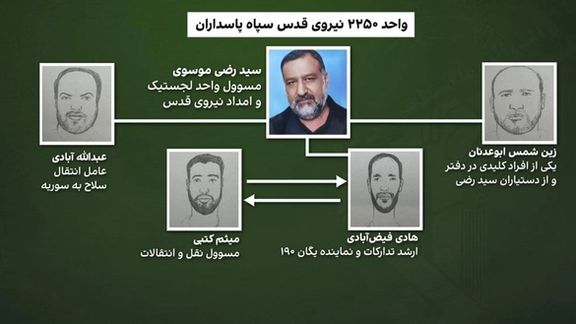
Israel has not officially claimed responsibility for the targeted killing, but it has always insisted that it seeks to prevent entrenchment of Iran-backed forces near its borders. It has been mounting attacks in Syria for years against Iranian and Iran-backed forces that have deployed there presumably to support Syrian President Bashar al-Assad.
However, Israeli Prime Minister Benjamin Netanyahu said Saturday that Israel “acts against Iran all the time, everywhere, in every way,” adding that Israel is “landing heavy blows against Hezbollah, eliminating many terrorists and destroying the enemy’s capabilities.”
“If Hezbollah expands the war, it will receive blows it never dreamed of – and so will Iran... Iran leads the axis of evil and aggression against us on the various fronts,” he stated.
In recent years, Israel has intensified strikes on Syrian airports to disrupt Tehran's increasing use of aerial supply lines to deliver arms to allies in Syria and Lebanon including Hezbollah. Following increasing disruptions to ground transfers, Tehran has adopted air transport as a more reliable means of ferrying military equipment to its proxy militias.
Since October 7, when Iran-backed Islamist group Hamas declared war on Israel, Tehran’s proxies have intensified attacks on US and Israeli targets across the region to pressure Israel into ceasing its retaliatory offensive in Gaza. Iran denies involvement in the October 7 attack but cheers Hamas killings and pledges unwavering support to any group that acts against Israel and US forces.
The death of Razi Mousavi on December 25 is seen as a blow to the Iranian regime’s ability to strengthen and supply its proxy forces in the region. Iran has vowed revenge for the targeted killing, similar to a US air strike that killed Iran’s Quds Force commander Qasem Soleimani in January 2020 in Baghdad.
Beheshti, an independent journalist and Iranian human rights activist based in London, recently concluded a 72-day hunger strike, followed by a sit-in last month. His protest aimed to persuade the British government to designate Iran's Islamic Revolutionary Guards Corps as a terrorist organization, serving also as a demonstration against the regime.
Participating as a speaker in the Knesset Israel Victory Caucus (KIVC), Beheshti will explore the question of what Israel's victory will resemble at the conclusion of the war, the Israel Victory Project announced in a press statement released on Monday. The conference, led by MK Ohad Tal of the Religious Zionist Party and Yifat Shasha-Biton of National Unity in collaboration with the Israel Victory Project, will bring together members from both the coalition and the opposition.
The Israel Victory Project, which seeks to guide US and Israeli policy towards supporting an Israeli victory over the Palestinians to resolve the Arab-Israeli conflict, underlines its mission to safeguard Western values from "Middle Eastern threats."
Beheshti's visit aims to convey support for Israel on behalf of the Iranian people and advocate for the Jewish state to shift its attention to the Iranian regime rather than just its proxy arms, including terror organizations like Hamas, Hezbollah, and the Houthis.
The visit follows last year's historic visit of exiled Prince Reza Pahlavi who visited Israel to show support to the Jewish state.